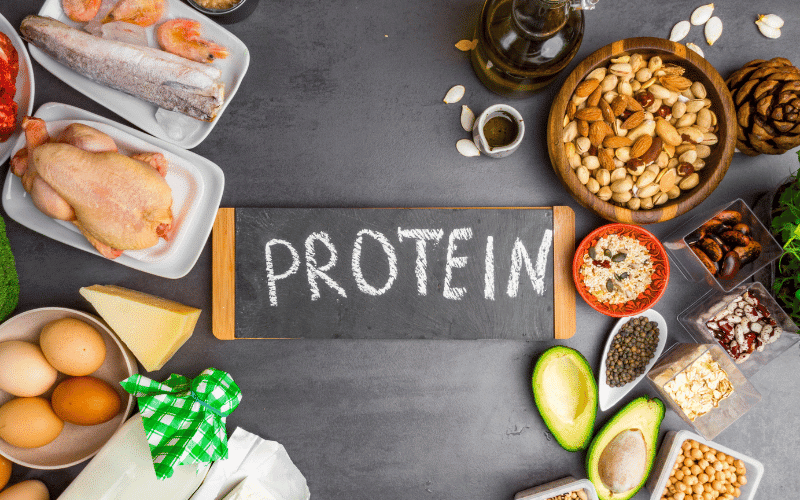Tip 3. Protein Power: Fueling Your Recovery

Embarking on your recovery journey post-thyroidectomy calls for the right kind of fuel – protein. This essential nutrient holds the title of the ‘building blocks of life’ for a good reason.
Proteins are involved in virtually every cell and function in our bodies, playing a vital role in the recovery and repair processes. But how can protein help post-thyroidectomy, and how should you incorporate it into your diet?
Proteins are made up of amino acids, nine of which are considered essential, meaning they can’t be produced by our bodies and must be obtained from the food we eat. Following your thyroidectomy, your body’s need for these essential amino acids increases. They play a pivotal role in repairing tissues, supporting immune function, and promoting the formation of enzymes and hormones, all critical aspects of the recovery process.
Additionally, protein helps maintain and build muscle mass. With changes in thyroid hormone levels post-thyroidectomy, you might experience changes in your metabolism and muscle mass. By incorporating adequate protein in your diet, you can help counteract potential muscle loss and support muscle health.
How can you meet your protein needs? Start by incorporating a source of lean protein into each meal. Lean meats, fish, poultry, eggs, tofu, and low-fat dairy products are all excellent sources. If you’re following a plant-based diet, beans, lentils, chickpeas, quinoa, and nuts can help you meet your protein needs.
It’s also beneficial to include protein-rich snacks in your diet. Greek yogurt, cottage cheese, a handful of nuts, or a protein shake can all provide a protein boost. But remember, balance is crucial. While you want to ensure adequate protein, overdoing it can place unnecessary strain on your kidneys and lead to other health problems.
It’s also important to note that not all protein sources are created equal. Opt for high-quality proteins that also offer other essential nutrients. For example, fatty fish like salmon not only provides protein but is also rich in omega-3 fatty acids, beneficial for heart health. Similarly, nuts and seeds provide protein along with fiber and healthy fats.(3)